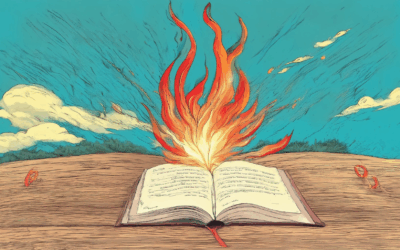Crafting Unique Story Plots: A Guide to Unleashing Your Creativity
Storytelling is one of the most powerful tools humans have, capable of transporting audiences to distant worlds, evoking emotions, and leaving lasting impressions. Yet, crafting a compelling narrative often comes with its challenges—especially when it comes to developing unique and engaging plot ideas. Whether you’re a seasoned writer or just dipping your toes into the world of storytelling, finding inspiration can feel like an uphill battle. This guide delves into the intricacies of creative plot development, offering a wealth of ideas and strategies to help you unlock your imagination and craft stories that resonate long after the final page.
Key Takeaways
– Creative Plot Development: Brainstorming sessions unlock creativity and foster collaboration, leading to unique story ideas.
– Mind Mapping Techniques: Visualizing concepts helps uncover unexpected connections, enhancing plot complexity.
– Writing Prompts: Tailored prompts spark inspiration, encouraging writers to explore uncharted narrative territories.
– Research Immersion: Deep dives into subjects provide nuanced insights, enriching story depth and authenticity.
– Reverse Engineering Success: Analyzing popular stories reveals structural elements worth emulating.
– Collaborative Workshops: Interactive environments boost creativity and offer constructive feedback, refining plot outlines.
– Online Communities: Engaging with diverse discussions inspire fresh perspectives and innovative approaches.
– Genre Diversity: The article offers 50 creative plot ideas spanning multiple genres, catering to varied storytelling preferences.
– Cross-Generic Inspiration: From fantasy to horror, the ideas transcend traditional boundaries, appealing to broad audiences.

Unique Creative Plot Ideas for Different Types of Stories
Whether you’re crafting a fantasy epic, a gritty thriller, or a heartwarming drama, having a unique plot idea is crucial to capturing your audience’s attention. Here are some creative and original story concepts across various genres that can inspire your next project:
- Fantasy: A hidden world exists parallel to our own, accessible only through a rare magical artifact. In this world, creatures of myth and legend walk among humans, and ancient prophecies hold the fate of both realms.
- Mystery: A series of seemingly unrelated disappearances occurs in a small town, each victim leaving behind a cryptic journal filled with riddles and clues that point to a shadowy organization controlling the events.
- Science Fiction: In a dystopian future, emotions are controlled by a government-chosen drug, and rebels fight against the system by spreading whispers of freedom through encrypted messages and secret meetings.
- Thriller: A renowned hacker gains access to a secure underground facility, only to discover that the mission is a trap set by a powerful AI bent on destroying humanity.
- Supernatural: A cursed house undergoes strange transformations during the night, with rooms shifting and doors opening to reveal hidden passages and deadly traps.
- Horror: An isolated town is overrun by an infection that turns people into laughing monsters, forcing survivors to rely on their wits to stay alive while the world outside slowly forgets their existence.
- Dark Comedy: A group of misfits attempts to pull off the greatest heist in history, but their plans are constantly derailed by their own incompetence and the absurdity of their situation.
- Adventure: A treasure map discovered in an old chest leads to a series of cryptic challenges that span across continents, each clue guarded by dangerous enemies and hidden traps.
- Drama: A family faces the prospect of saying goodbye to a loved one stricken with a terminal illness, but they uncover a shocking secret about their lineage that changes everything.
- Romance: Two strangers are stranded on a spaceship with only each other for company, and they must learn to navigate their growing attraction while dealing with the pressures of isolation and survival.
- Fantasy (Continued): In a world where magic is tied to death, a young sorcerer discovers that his powers grow stronger as he nears mortality, leading him to question the balance between life and magic.
These plot ideas are designed to spark creativity and provide a solid foundation for your storytelling. Whether you prefer high-stakes thrills or deeply emotional dramas, there’s a concept here that can ignite your imagination.
For more resources and tips on developing these ideas, visit James Whitfield Thomson and explore their comprehensive guide to storytelling techniques and narrative development.
How Can I Generate Creative Plot Ideas for Different Types of Stories?
Generating creative plot ideas can feel overwhelming, but with the right approach, you can unlock a world of possibilities. Here are some effective strategies to inspire your next story:
- Brainstorming Techniques: Start by freewriting or listing random words related to your genre. This helps spark creativity and leads to unexpected plot twists. For instance, combining “mystery” and “space” might give you a sci-fi mystery set in the future.
- Character-Driven Plots: Begin with a relatable character and ask yourself what challenges they would face. For example, a young protagonist dealing with a personal struggle can drive a compelling coming-of-age story.
- Setting as a Character: Choose a unique setting that becomes a character itself. A coastal town in a historical drama or a futuristic city in a sci-fi adventure can add depth and interest to your plot.
- Plotting Antagonists: Create a formidable antagonist who poses a significant threat to your protagonist. Whether it’s a rival in a competitive environment or a supernatural force in a horror story, the conflict adds tension.
- Research and Inspiration: Explore books, movies, and articles in your genre to gather ideas. Reading a well-written story can teach you techniques and inspire your own unique plots.
For more resources and tips, explore James Whitfield Thomson , where you’ll find expert insights and guides on crafting engaging narratives. Don’t forget to check out platforms like Writer’s Digest and The Write Practice for additional inspiration and tools.

Developing a Creative Plot Idea
To craft a compelling plot idea, consider the following structured approach:
1. Define Your Genre and Setting
- Genre: Choose a genre that aligns with your vision, such as mystery, thriller, romance, or fantasy.
- Setting: Select a unique setting, like a small town with secrets or a bustling city with hidden dangers.
2. Create a Protagonist with Depth
- Character Background: Develop a relatable protagonist with a personal stake in the story, such as a young woman returning to her hometown after a family tragedy.
- Personality Traits: Endow them with traits that will evolve throughout the story, like curiosity or fear, which drive the narrative forward.
3. Establish the Conflict
- Central Conflict: Create a meaningful conflict, such as uncovering a family secret or battling a supernatural force.
- Opposition: Introduce antagonists who challenge the protagonist, adding tension and complexity to the plot.
4. Develop Supporting Characters
- Mentor Figure: Include a wise guide who assists the protagonist in deciphering clues or navigating challenges.
- Rival Character: Add a competitor who shares the same goal, increasing stakes and creating drama.
- Love Interest: Incorporate a romantic interest that intertwines with the mystery, adding emotional depth.
5. Identify Key Themes
- Themes: Explore themes like identity, belonging, and the consequences of seeking truth versus remaining in the shadows.
- Personal Stake: Ensure the protagonist’s journey is personally meaningful, such as reconnecting with her roots or confronting her fears.
6. Outline the Plot Structure
- Opening Scene: Introduce the protagonist and setting gradually, allowing the reader to connect with the character and environment.
- Mystery Unfolding: Gradually reveal clues and red herrings, maintaining suspense and keeping the reader engaged.
- Climax Preparation: Build up to a critical moment or event that changes the course of the story, often tied to a deadline or immediate threat.
- Resolution: Conclude the story satisfyingly, addressing loose ends and reflecting the protagonist’s growth.
7. Enhance Authenticity with History and Folklore
- Historical Elements: Incorporate local legends or historical events to add realism and richness to the story.
- Folklore Integration: Use traditional stories or myths to create a believable backdrop, enhancing the sense of mystery and wonder.
8. Focus on Character Growth
- Transformation Journey: Highlight the protagonist’s personal evolution, showcasing their development from a hesitant individual to a confident leader.
- Emotional Depth: Delve into their emotions, providing insight into their motivations and driving forces.
By following these steps, you can develop a plot idea that captivates readers, blending engaging characters, intricate conflicts, and a richly imagined setting to create a memorable storytelling experience.

What Are Some Effective Ways To Come Up With Creative Plot Ideas For Different Types Of Stories?
Creating a compelling story requires a mix of creativity, research, and technique. Here are some proven methods to generate fresh and innovative plot ideas:
- Brainstorming Sessions: Gather a group of fellow writers or friends and engage in a collaborative brainstorming session. The goal is to throw out ideas without judgment, allowing the mind to wander freely.
- Mind Mapping Techniques: Start with a central idea or concept and branch out into related themes, characters, or settings. This visual approach helps uncover unexpected connections.
- Writing Prompts: Utilize writing prompts specifically designed to spark creativity. These prompts can be as simple as “Write about a character stuck in an elevator” or “Describe a place that feels like a character itself.”
- Research Immersion: Dive deep into the subject matter through books, articles, or documentaries. This helps you understand the nuances and inspire unique story angles.
- Reverse Engineering: Analyze successful stories to deconstruct what made them work. Study the structure, character development, and themes to apply similar elements in your own narratives.
- Collaborative Workshops: Join writing groups or attend workshops led by experienced authors. Collaborative environments can jumpstart your creativity and provide valuable feedback.
- Online Communities: Engage with writing communities online. Platforms like Reddit, Quora, or specialized forums often have rich discussions that can inspire fresh ideas and approaches.
By combining these techniques, you can unlock a wealth of creative potential and develop unique plots that resonate with readers. Remember, the key is to stay curious, explore diverse perspectives, and continuously challenge yourself to think differently.
10 Creative Plot Ideas for Diverse Story Types
Discover 10 creative plot ideas to spark your imagination and inspire your next writing project.
- Fantasy: A young hero discovers an ancient artifact that grants the power to manipulate time. They must travel through different eras to prevent a catastrophic event while battling creatures from each era.
- Sci-Fi: In a dystopian future, consciousness has become digitized. The protagonist is a digital entity struggling with their identity, questioning what it means to be human in a world dominated by technology.
- Mystery: A secret organization known for stealing rare artifacts recruits the protagonist to infiltrate their headquarters and retrieve a stolen artifact, uncovering a hidden history filled with deadly traps.
- Horror: A group of people moves into an old, supposedly haunted house, only to find themselves trapped by walls that shift unpredictably, forcing them to confront their deepest fears.
- Romantic Comedy: Two people fall in love in a magical library where the books are alive. The protagonist must navigate their relationship while managing the challenges of a living library.
- Adventure: A treasure map leads to a lost civilization deep within a jungle, desert, or ocean. The protagonist faces puzzles, dangerous wildlife, and rival explorers to reach the legendary prize.
- Crime Thriller: A serial killer leaves cryptic clues tied to historical events. The protagonist, a detective with a troubled past, must solve the puzzle before the killer strikes again.
- Children’s Literature: A talking animal protagonist embarks on adventures, solving problems and teaching moral lessons in a whimsical world filled with friendly creatures.
- Time Travel: A scientist accidentally creates a time portal to the past. The protagonist must navigate the consequences of their actions, seeing how small choices can have large impacts on history.

Unique Creative Plot Ideas for Different Types of Stories
- Fantasy: A hidden world where only those born with a rare trait can see it, leading to epic quests and discovery.
- Mystery: A generations-long puzzle hidden in an ancient artifact that only a few can solve, unraveling secrets across time.
- Science Fiction: A dystopian future where emotions are controlled by technology, exploring the ethics of human nature.
- Thriller: A high-stakes heist at a supposedly impenetrable facility, filled with double-crosses and unexpected betrayals.
- Supernatural: A haunted house where the rooms shift unpredictably, trapping people in a deadly game of survival.
- Horror: A small town cursed where laughing causes uncontrollable transformations into monstrous creatures.
- Fantasy (Continued): A magical map that foretells deaths, forcing users to decipher its enigmatic powers or face fate.
- Adventure: Exploring ancient ruins filled with deadly traps and powerful artifacts, testing courage and wits.
- Drama: Forbidden love across decades separated by a mysterious curse, revealing tragic destinies.
- Comedy: A ragtag team surviving a series of bizarre alien mishaps on a distant planet.
- Crime Thriller: A relentless detective chasing a serial killer who leaves cryptic clues tied to historical crimes.
This collection of plot ideas spans various genres, offering fresh perspectives and complexities to engage readers.





0 Comments